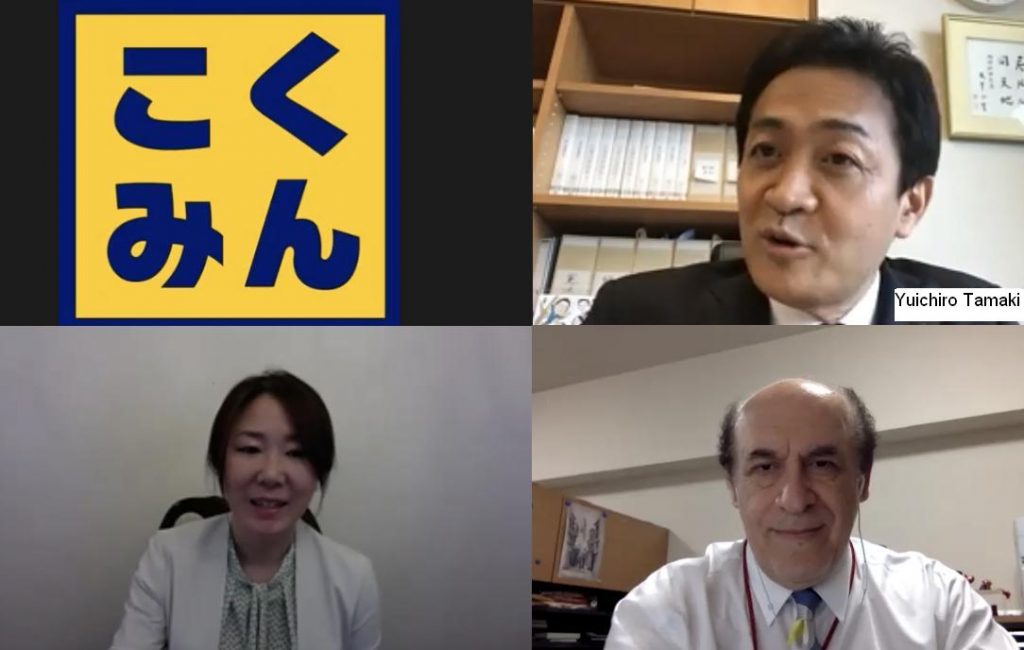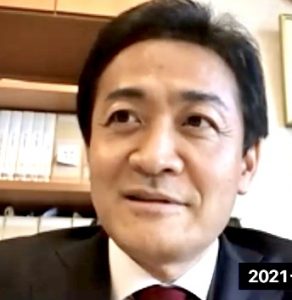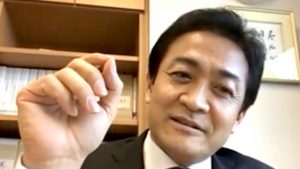
- ARAB NEWS
- 01 Jul 2025

Khaldon Azhari
TOKYO: Yuichiro Tamaki is the leader of the Democratic Party for the People, which has 19 representatives across the two houses of Japan’s Diet (Parliament). He is seen as a conservative politician but reached the Diet with the Democratic Party of Japan. He covered Jordan and Libya while working for the Foreign Ministry and sees the Middle East as a crucial area to ensure world peace.

“When I was working with Jordan and Libya in the 1990s at the Foreign Ministry’s First Middle East Division, Japan put more emphasis on moderate countries such as Jordan, Saudi Arabia and the United Arab Emirates (UAE),” Tamaki told Arab News Japan in a recent interview. “The relationship with these Arab countries is a key for the stability in the Arab world. Bearing this in mind, I was a little concerned about the conflict in Jordan’s royal family. The stability of the royal family and the government of Jordan is important for Arab countries and for the region.”
As for Iran, Tamaki believes that Japan can play a significant mediation role among the countries in the region and the United States.
“Former President Trump (Donald) didn’t like the Iran nuclear deal (The Joint Comprehensive Plan of Action — JCPOA) but we should go back to the agreement. There is a big concern about the development of nuclear weapons in Iran,” Tamaki said.
“Iran is a big country in the region, so we hope relations with Iran and other countries, especially their neighboring countries, will make sensible progress. Japan has historically had a good relationship with Iran, so we can play a very important role between Iran and the United States and other countries.”
Tamaki’s first concern is with Japan and regional issues, especially those concerning China. He is a believer in having a strong defensive structure while maintaining Japan’s strong industrial base.
“I think we have two goals: First, we need to increase our ability to defend ourselves; second, as Japan’s industrial competitiveness has been declining, we want to revive our technology, so we must increase investment in education, and science and technology.”
Tamaki has a pragmatic approach to defense but believes that Japan has to be able to defend itself and does not rule out nuclear deterrence.
“The reality is that a nuclear umbrella strategy is necessary to defend Japan,” he emphasizes. “However, Japan suffered from the devastation of atomic bombs in World War 2, so abolishing nuclear weapons worldwide is ideal, but in the short term, in the real world, we have to accept a nuclear umbrella strategy.”
Tamaki has a mixed view on China, acknowledging its economic importance but worrying about its expansionist policies.

“We are a member of the Asian community of countries and we can’t ignore that, and I think we need China and China needs Japan,” Tamaki says. “We need good relations with China. From a national security policy point of view, the coalition between the US, Japan and South Korea is very important for the peace and stability not only for the far East Asian region, but also for the whole world. We are being put under pressure, especially maritime pressure, from China, so we need to strengthen the ties amongst the three countries. It’s a difficult task to strike a balance with big countries, but Japan can play a very important and difficult role.”
Despite more than 20 meetings between former Prime Minister Shinzo Abe and Russian President Vladimir Putin, a resolution of their long-standing differences over four northern islands under Russian control still seems out of reach. Tamaki says he expected some development on the issue but progress has been slow and Russia clearly has control over the situation.
Perhaps the biggest issues in Japan at the moment are the spread of COVID-19 and the upcoming Olympics. Many Japanese are worried about the former and concerned that the latter is affecting policies that will keep Japan’s citizens safe.
Although Japan’s infection rate appears low, the number of tests carried out is also low and the country’s vaccination program has barely started. Tamaki believes the government of Prime Minister Suga, which is also preparing for a general election in October, is wrong to be “fighting on two fronts.”
“I want to see the Olympic Games but, honestly speaking, it’s become difficult to hold the Olympic Games as planned. The first priority is how to decrease the number of cases and deaths in Japan. But at the same time, the government wants to hold the Olympic Games. I think we can’t pursue these two objectives at the same time. If we hold the Olympic Games, we will need to provide the athletes with medical services but we need these medical people to give vaccines to Japanese people. We should put more emphasis on saving the lives of the Japanese people before pushing forward with the Olympic Games. Prime Minister Suga seems to be using the Olympic Games to help him win the election in October.”
Yuichiro Tamaki (52) was born in Sanuki City, Kagawa Prefecture. Upon graduation from the University of Tokyo’s Faculty of Law in March 1993, he joined the Ministry of Finance. In July 1997, he was transferred to the Ministry of Foreign Affairs (Middle East Division 1 of the Middle East Africa Bureau). After serving in various official posts in various ministries and the Cabinet Office, he was elected to the House of Representatives in August 2009 and has served four terms up to now.
(With inputs from Teruyo Narita Yamaguchi)